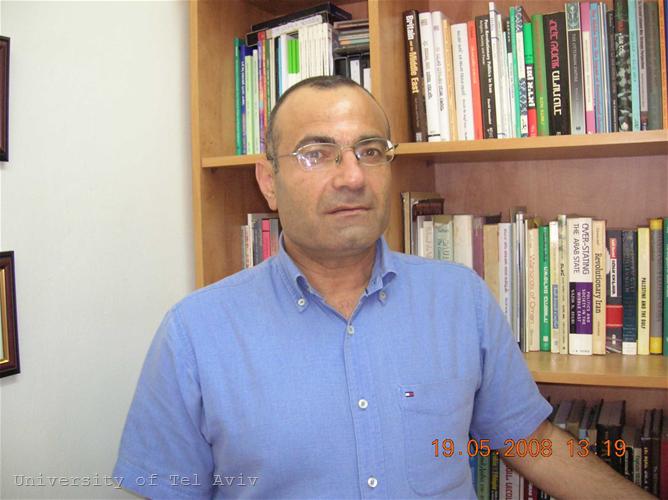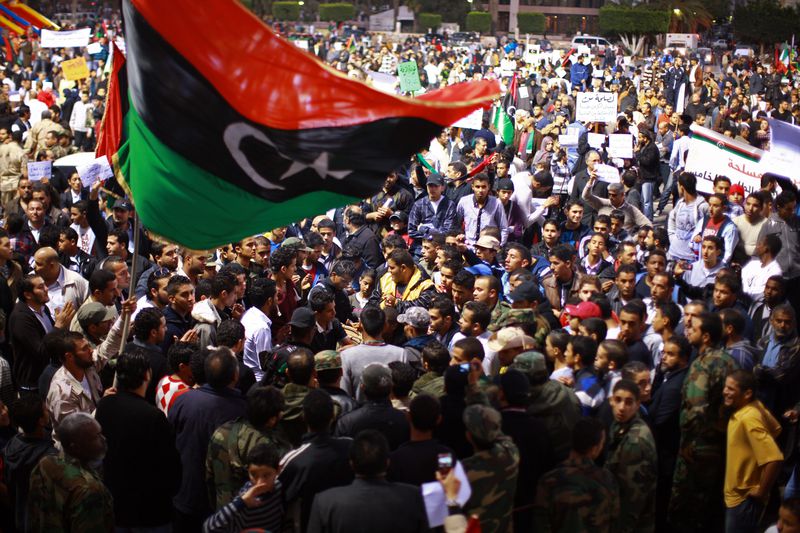The new unipolar world - the Internet
Adelina Marini, February 16, 2011
 A new trend has started outlining itself during the protests and changes in Egypt - whoever controls Internet, will rule the world. Do you remember the uprisings in Moldova in April 2009, called in the West a Twitter-revolution? Then again, according to Western analysts and media, most protesters had organised themselves in the Twitter social network, from where, by the way, came most of the news about the events in the capital Chisinau. A little later afterwards, the same year, the situation repeated itself in Iran too after the presidential elections, won again by Ahmadinejad and that caused the largest protests for decades in the country of the ayatollahs.
A new trend has started outlining itself during the protests and changes in Egypt - whoever controls Internet, will rule the world. Do you remember the uprisings in Moldova in April 2009, called in the West a Twitter-revolution? Then again, according to Western analysts and media, most protesters had organised themselves in the Twitter social network, from where, by the way, came most of the news about the events in the capital Chisinau. A little later afterwards, the same year, the situation repeated itself in Iran too after the presidential elections, won again by Ahmadinejad and that caused the largest protests for decades in the country of the ayatollahs.
Then again it was the social networks that were given the starring role. And now their influence is once more on the agenda in Tunisia, in Egypt and also in the rest of the Arab countries. But to what extent social media indeed do have a role in inspiring uprisings or at least assisting them? There are serious disagreements on the issue but it is a fact that authoritarian regimes do their utmost to restrict the access of their citizens to the social networks. It is also a fact that the social networks are the only window to the world and among themselves for the people who live in closed despotic societies.
And another fact - the American Secretary of State, Hillary Clinton, announced a new policy of the United States that would deal with Internet Freedom. This policy is being worked upon into a year, the New York Times reports, but given the events in the Middle East, major elements of it were outlined on February 15th. The work on the new policy was hindered by furious disputes on whether it should support or even more - perceive the Internet mainly as a weapon for toppling of repressive regimes or as a tool, which autocrats use to root out or crash dissent.
The American Secretary of State has already acknowledged Internet's dual role in an address a year ago. In her last night's address she again touched the issue how social networks were used both by protesters and governments during the rebellions in Tunisia, Egypt and other Arab states. The State Department also plans to finance programmes for circumventing services that would enable users to evade Internet firewalls, and training for human rights workers on how to secure their e-mail from surveillance or wipe incriminating data from cellphones if they are detained by the police.
All this takes me, personally, to thinking that whoever gains control over the Internet domain will rule the world. And this thought popped up in my mind, aside for the above, but also for the fact that social networks were forbidden in countries like China, Saudi Arabia and Iran. And, although in our country social networks are also a wonderful tool for gathering support for one or another protest, the real dimension of which is times less, obviously around the world this proportion is sufficient to cause responsive actions. And given the fact that the US are loosing at the economic and military front, the Internet front seems an extremely good environment to secure global influence.
And before blaming me of falling into extremities or attachment to conspiracy theories, here is another fact. Again the New York Times reported that Facebook management, of which the newspaper claims that it played the main role in Egypt's uprising, refused to comment on the issue. The main explanation, given so far by the company, is that it did not want to be seen as picking sides which, however, was a fact since Facebook decided to close several pages, calling for protests in Egypt,  because of a violation of the rule users to use their real names and not nicknames.
because of a violation of the rule users to use their real names and not nicknames.
Such was the case with a Google manager who was arrested by the police in Egypt during the protests. In November Wael Ghonim used a nickname to create a profile of one of the administrators of a protest page. Because of the existence of an emergency situation in Egypt, which restricts the freedom of speech, Mr Ghonim might have put himself and the other organisers at risk if they were discovered at that time. In the end of the day, Ghonim was discovered and stayed in detention for 12 days. He is considered to be one of the symbols of the protests in Egypt.
It does not matter whether the most popular social network has applied a double standard in this specific case or not, but it is a fact that the companies that manage networks, where millions of people gather from all around the world, (for Facebook the official data indicate of 550mn users) are not prepared for the consequences from the availability of many people in one place. The difference between a real gathering of people in a square and in the Internet is thin, and the Internet should be considered as more dangerous, because the behaviour rules there are still a terra incognita. And this is only one side of the coin. The other is that in the Internet control over users could prove to be several times greater than in real life. Practically what is happening right now, with the assistance of the Internet, is a long expected but quite underestimated clash of two parallel worlds.
A clash that has to lead to a reasonable debate on how rule of law to be imposed in the Internet domain, similar to the rule of law in reality. Because, aside from people who share photos, vacations, dreams, problems, etc., in the social networks there are many other people whose goals go much beyond the simple sharing of photos, links or hobbies. And, given the global battle for influence, there is a real danger the thin red line not to be noticed and extremities to be reached which no one will like, especially in the free world.
But what, in fact, happened in Egypt?
 With Internet or without, the result of the 18-day-long protests in Egypt led to the resignation of the 82-year-old president, Hosni Mubarak. This happened around 6 o'clock local (and Bulgarian) time when, again after an entire day of speculations and rising tension, distribution of rumours and feeding of expectations, the state television reported that the president had resigned and transferred governance to the High Army Council. This caused jubilation and celebrations all over Egypt for several hours, before the questions came - how long will the military government exist, will the Constitution be suspended, will the Parliament be dissolved, will democratic elections take place?
With Internet or without, the result of the 18-day-long protests in Egypt led to the resignation of the 82-year-old president, Hosni Mubarak. This happened around 6 o'clock local (and Bulgarian) time when, again after an entire day of speculations and rising tension, distribution of rumours and feeding of expectations, the state television reported that the president had resigned and transferred governance to the High Army Council. This caused jubilation and celebrations all over Egypt for several hours, before the questions came - how long will the military government exist, will the Constitution be suspended, will the Parliament be dissolved, will democratic elections take place?
And while these questions were getting ripe and the analysts were sharpening their pens for the next series of expectations, forecasts and analyses, the army responded by stating that the military rule would exist for six months or until elections were to be held. The Constitution had been suspended and the Parliament - dissolved. It is yet to see whether the army would respond to another demand of the protesters - the release of political prisoners. All these actions of the military government, however, still feed up the skeptics who say that 6 months are enough time for promises to be forgotten and the military rule confirmed. But unless we see this happening, we cannot speculate any further.
But what impresses is a very important move - the new military authority in Egypt has immediately asked the accounts of several high officials to be frozen in the European Union and the United States. Switzerland has already frozen such accounts pending for a proper investigation. For now there are only speculations what the size of the wealth of Mubarak's family is but for sure it will be a good news if a fully fledged investigation takes place that could prove the origin of this wealth.
The domino effect
The events in Northern Africa developed so fast, again thanks to the new  technologies and the social networks, that it is getting harder and harder to outline the reasons beyond one uprising or another. There are rebellions already in Yemen, Bahrain, Jordan and even Iran. It is Iran that is the interesting case in the entire picture as in the very beginning of the uprising in Egypt, the Iranian supreme leadership was fast to announce that this was only the beginning of an Islamic revolution that would spread all over the Middle East. Alas, it proved that in the 21st century no one wants religious or ideological revolutions anymore, just rights, justice, economic opportunities. Moreover, the protesters in Iran directly attack the religious leadership of the country - ayatollah Ali Khamenei, which is indicative for the scales of the unrests in the region.
technologies and the social networks, that it is getting harder and harder to outline the reasons beyond one uprising or another. There are rebellions already in Yemen, Bahrain, Jordan and even Iran. It is Iran that is the interesting case in the entire picture as in the very beginning of the uprising in Egypt, the Iranian supreme leadership was fast to announce that this was only the beginning of an Islamic revolution that would spread all over the Middle East. Alas, it proved that in the 21st century no one wants religious or ideological revolutions anymore, just rights, justice, economic opportunities. Moreover, the protesters in Iran directly attack the religious leadership of the country - ayatollah Ali Khamenei, which is indicative for the scales of the unrests in the region.
For the moment, the authorities in Iran react brutally, which prevents people from getting organised in large numbers. The question now is how, in spite of the lack of Internet and freedom of gathering and speech, the events will develop in the Islamic republic. One is for sure, though, the more unclarity there is regarding the real motives in each of the restive countries in the region, the bigger the risk for stability is not only in the region but in broader terms.
The West is standing quietly and watching
The role of the West is interesting at the moment, but the European Union's reaction is even more interesting. Yet late on Friday the first reactions started to come from Brussels. This time the Union has learned from the criticism that its position was again not single, that was not expressed in one voice, that it was slow to react etc. The statement this time was a joint one - of the three major leaders of the Union - the president of the Commission, Jose Manuel Barroso, of the European Council - Herman van Rompuy and High Representative for Foreign Affairs Catherine Ashton. In their statement the three welcome Hosni Mubarak's decision to step down, as well as Egyptian's courage to resist to the end. They also call for the regional stability to be a shared priority and the army to continue to act responsibly and to guarantee that democratic change would take place peacefully.
The reactions of the political forces in the European Parliament were scant. The fastest and most determined were the liberals from ALDE. The group's leader, the former Belgian prime minister, Guy Verhofstadt, said that Mubarak's stepping down was a historic moment. "Following Tunisia, Egypt will now start the democratic process. The people of Tunisia and Egypt have proven wrong those in the west that claim that Islam and democracy are not compatible. When we see Muslims and Christians demonstrate shoulder to shoulder, we are very confident in the strength of the people to build an open society and a liberal democracy. ALDE will give all possible support and ask the European Union to do the same", ends his statement Mr Verhofstadt.
Right after Mubarak's fall, ALDE sent emissaries in Cairo to assess the situation. It was then that it became clear that the EU would stand aside and wait. At a joint press conference with the founder of the Egyptian liberal party Dr Ayman Nour, the Liberal Edward McMillan-Scott, who is also a vice president of the European Parliament, said: "I am not here as a Briton or European, I am here as an honorary Egyptian, to rejoice in the defeat of a tyrant. Now we should stand back and leave it to the Arab countries to move towards democracy. We'll help if they ask but this is their future", the British MEP added.
The Bulgarian Ministry of Foreign Affairs also reacted immediately by publishing a statement of Minister Nickolay Mladenov in which he said that the Egyptian people had opened a new page "in the proud history of their country". According to Mr Mladenov President Hosni Mubarak had taken the right decision to open the way to reforms. "Now a major priority should be holding a national dialogue for a government, capable of ensuring rule of law and human rights, to organise free elections. I hope the army would be a guarantor of the peaceful transition to a democratic civil society", the statement reads.
Is this the Arab Berlin wall?
The president of the European Parliament, Jerzy Buzek, Polish by origin, compared the situation in the Middle East and Northern Africa with the events of 1989-90 in Eastern Europe - an allusion that, by the way, was made by not one or  two European representatives, including the Bulgarian foreign minister. Without trying to prove whether this is right or wrong, in any case it will be very useful the processes that led to the "freedom" of the countries of the former Soviet bloc, to be studied very carefully. At least because in some countries freedom really did happen, while with others (like Bulgaria) it was hesitant and accompanied by nostalgia for the past.
two European representatives, including the Bulgarian foreign minister. Without trying to prove whether this is right or wrong, in any case it will be very useful the processes that led to the "freedom" of the countries of the former Soviet bloc, to be studied very carefully. At least because in some countries freedom really did happen, while with others (like Bulgaria) it was hesitant and accompanied by nostalgia for the past.
So, 20 years are not such a long time so that the events of 1989 to be carefully analysed and to be taken into account when assessing the events in the Middle East. And all this should be looked at through the prism of the problems with freedom in the Internet - a new type of freedom of a new type of society.
 | © University of Tel Aviv
| © University of Tel Aviv | © Syrian Presidency
| © Syrian Presidency | © UN
| © UN